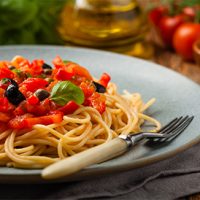The Natural & Organics Show (NOPEX) will be taking centre stage once more at…

Brexit’s Effect on the Food Industry
In the wake of 2016’s tumultuous political landscape, Britain has seen the beginning stages of an exit from the EU when Article 50 was triggered on 29th March 2017. However, what this means for different industries has yet to be determined. For the food industry, there are many questions that will need to be answered during the ensuing negotiations over the next few years.
With this uncertainty surrounding the food industry, there is a particular issue regarding food labelling because the law surrounding it is a complicated mix of UK Legislation and EU Regulations. How will this complicated web untangle and how will it affect the industry as a whole?
EU or UK?
Much of the current legislation surrounding food labelling in the current UK market is directly from the European Union. Specifically, some of the most important aspects such as ingredient lists, allergens, health and nutrition claims, and also protected factors such as the name of a product from a specific region (e.g. Champagne) are all a consequence of EU regulation.
There are certain British laws, such as the Food Safety Act 1990 which prevents food packaging from being misleading. So, the resulting overall legislation is a soup mix of the two ruling bodies together with the outcomes of legal cases on packaging from both the UK and Europe. The separation of this legislation post-Brexit, then, will be a complicated matter to negotiate in order to uphold standards across food packaging.
In the pursuit of consistency, the tendency to use European legislation has become the norm in regards to UK packaging. While this will continue until Britain officially exits the EU – which could be a number of years from now – it is important to consider what will become of this legislative process. Will the same laws continue, only under a new British label? Or will new laws be drawn up to reflect individual British needs?
Looking to the Future
In the wake of Brexit, the likelihood is that the UK will adopt the regulations as Statutory Instruments and make them legally binding outside of the UK. Some regulations may not fall under this banner, making it possible for some regulations to accidentally be dropped completely following Brexit. For example, the UK has no equivalent legislation for Protected Geographical Indicators or Protected Designation of Origins. As a result, it is possible products not originating from Champagne may be sold in the UK without originating from that area of France.
How the UK decides to enter the single market will impact on how the regulations change or do not change. One approach could be by implementing a European Free Trade Association, an agreement which provides access to the single market for EFTA states. The result would be that the current food labelling legislation would remain the same.
For more information about how your company can become kosher certified amidst these political changes, contact our team here at KLBD Kosher.




